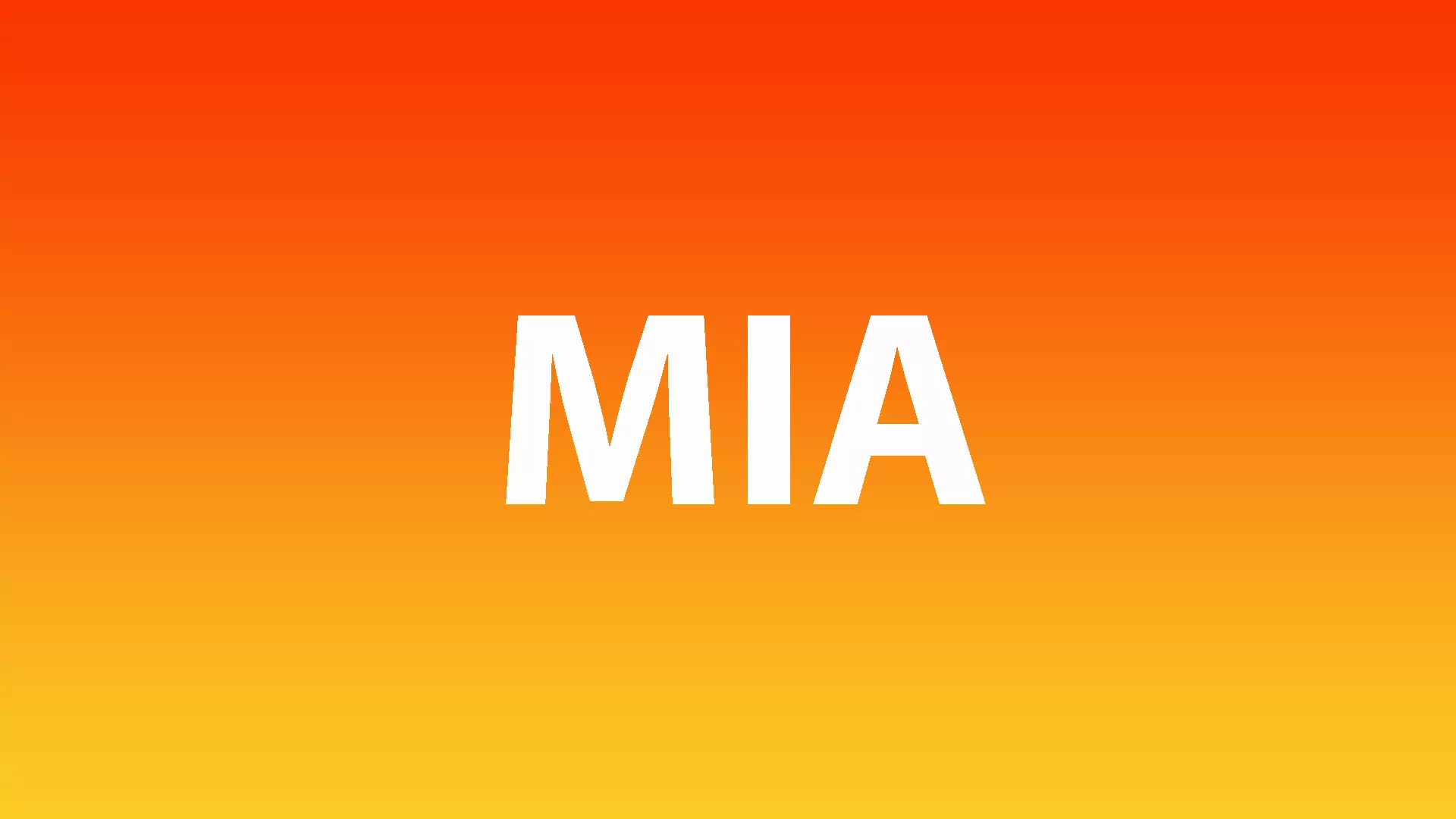What Does Mia Mean? Uncovering The Rich History And Meanings Of A Cherished Name
Have you ever wondered about the stories hidden within a name? It's almost like, each name carries a little piece of history, a whisper from different times and places. The name Mia, for instance, has a certain simple beauty, doesn't it? It's a name that feels both familiar and, in a way, quite special, resonating with many people all over the globe, which is really something to think about.
This particular name, Mia, has a fascinating journey through various cultures and languages, you know? It’s not just one meaning or one origin; it’s actually a rich blend, a tapestry of different threads woven together over centuries. So, when someone asks, "what does Mia mean?", the answer is far more interesting than you might first expect, that's for sure.
We're going to explore the many layers of this lovely name, tracing its roots from ancient times right up to its modern-day appeal. From its deep historical connections to its diverse meanings, we'll uncover just what makes Mia such a beloved choice for so many, and perhaps, you'll find a new appreciation for it, too, as a matter of fact.
- Meaning Of Am Pm In Time
- Hannah Einbinder Partner
- La La Land Cafe
- Salvage Hunters Tee
- What Happened To Rachael Ray
Table of Contents
- The Many Roots of Mia
- Mia's Diverse Meanings
- Mia's Popularity and Cultural Embrace
- Beyond the Name: Mia in Modern Contexts
- Frequently Asked Questions About the Name Mia
The Many Roots of Mia
The name Mia, you know, doesn't just spring from a single place; it has a rather fascinating, sprawling family tree. It's truly derived from many different sources, giving it a rich and varied background, which is pretty cool to consider, actually. This linguistic diversity means it has been welcomed by several cultures throughout history, making it a truly global name.
From Maria to Miryam: A Hebrew Connection
One of the most common paths for the name Mia is through Maria, which itself comes from the Hebrew name Miryam. This connection, in some respects, links Mia to ancient traditions and a very long lineage of naming. It's a foundational part of its story, giving it a deep historical resonance, as a matter of fact.
Ancient Egyptian Echoes: Mery or Myr
Interestingly, Mia's meaning also stems from the ancient Egyptian word 'mery' or 'myr'. This word, which translates to a particular idea, hints at its deep historical significance, even before its more commonly known European connections. It’s a very old root, suggesting a profound meaning from a bygone era, too.
- Emily Compagno
- 1 0 6 And Park
- Remote Iot Platform Ssh Key Raspberry Pi
- Why Are People Boycotting Target
- Riley Green Wife
Latin and Spanish: The Sense of "Mine"
In the Romance languages, the name Mia is most associated with the Spanish word 'mía' and the Latin word 'mia'. Both of these, quite simply, mean "mine." This direct translation, as you can imagine, conveys a strong sense of cherished belovedness and a deep personal connection, which is really quite lovely, anyway.
Slavic Origins: A Touch of Mila
The name Mia is also considered an offshoot of the Slavic word 'mila'. This connection, in some ways, adds another layer to its rich background, suggesting a link to meanings of endearment and affection. It's a rather sweet association, further enriching the name's emotional depth, you know.
Scandinavian Interpretations: Bitter and Good
In Scandinavian countries, Mia is often considered a short form of the name Maria, which means "bitter" in Hebrew. However, in Scandinavian languages themselves, Mia is derived from the Old Norse word 'mjaðr', which means "good." So, you see, it’s a name with a bit of a duality there, offering both a poignant and a very positive meaning, which is quite interesting, really.
Diminutive Forms: Amelia, Emily, and Maia
Mia doesn't just stand alone; it's also a diminutive, or a shorter form, of several other beautiful names. It's a diminutive of Amelia and Emily, for example, and it can be alternatively spelled as Miah or Maya. This means it carries echoes of those names' meanings and histories too, making it even more versatile, as a matter of fact.
Mia's Diverse Meanings
Because of its many origins, the name Mia boasts a truly diverse collection of meanings. It's not just one thing; it's a whole spectrum of beautiful ideas, which is what makes it so appealing, you know. This richness allows individuals to connect with the name in many different personal ways, too.
Of the Sea or Bitter
Primarily, as a female name of English origin, Mia can mean "of the sea" or "bitter." The "bitter" meaning often comes from its connection to Maria and its Hebrew roots. These meanings, while seemingly different, show the depth and historical journey the name has taken, so.
Ocean Goddess or Queen
Moving beyond its more common interpretations, Mia can also mean "ocean goddess" or "queen." These are rather powerful and majestic meanings, aren't they? They evoke images of strength, beauty, and leadership, giving the name a truly grand presence, which is quite inspiring, I think.
Guardian of Justice
Another strong meaning associated with Mia is "guardian of justice." This suggests a person who is protective, fair, and stands up for what is right. It’s a very noble and honorable meaning, implying a strong moral compass and a sense of purpose, too, in a way.
Loved One and Cherished Belovedness
As a common diminutive of Maria, Mia can mean "loved one." This meaning is further reinforced by its association with the Italian word 'mia', meaning "mine," which directly conveys a sense of cherished belovedness and deep personal connection. It's a name that really speaks to affection and being treasured, you know, which is a lovely sentiment.
Mia's Popularity and Cultural Embrace
The name Mia has certainly enjoyed a wide embrace across different cultures and time periods. It's a testament to its simple charm and adaptable sound that it has resonated with so many people, which is really quite something, actually. The complete 2020 information available on its meaning, origin, history, pronunciation, popularity, and variants as a baby girl name shows just how much interest there is in it.
A Name Loved Across Continents
This name was common in Sweden and Denmark in the 1970s, and it was also popular in many other countries at that time. Its appeal, quite frankly, spans continents, making it a truly international name. It’s a name that feels at home in various linguistic landscapes, too, which is a significant part of its charm.
Primarily a Female Name
Most individuals with the name Mia are female. While names can sometimes be used

What Does MIA Mean on Facebook? – TechCult

What does MIA mean in slang? | Splaitor

What Does Cara Mia Mean In English | Spanish to Go